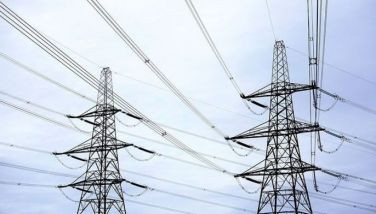Market seen moving into consolidation phase
MANILA, Philippines - The local stock market is expected to move into consolidation phase this week albeit on a negative bias given its recent ascent in past trading sessions.
Last week, the PSEi rose 138.48 points or 6.58 percent week-on-week to close at 2,241,98, buoyed by the rise of global markets on renewed optimism.
“The PSEi is now overbought and a correction is somewhat overdue. The last time the PSEi went on a winning streak longer than six days, it promptly gave back 25 percent of its gains is the days that followed,” said AB Capital Securities in its weekly market report.
Paul Joseph Garcia, chief investment officer at ING, said the anticipated correction that will take place this week should give investors an opportunity to re-enter the market.
“The market didn’t fall as much as we expected. But we think this should allow the public to reassess their holdings,” he said.
Garcia said the banks, property, telcos and utility stocks can withstand the current economic crisis that has gripped countries worldwide.
The US housing sector has shown signs of recovery with home sales rising 1.1 percent in March year on year.
Investors are expected to monitor US employment figures for April. “The labor market is crucial to the economy and the number of jobs lost in April is expected to be significantly lower than those lost in March. A result that is better than expected can be the impetus for a continuation in the current rally. However, disappointing results will lead to profit taking and corrections in equities worldwide,” AB Capital Securities said.
On the local front, the country’s inflation has fallen to 4.8 percent, the lowest in 16 months, giving the Central Bank room to further slash rates.
Jun Calaycay of Accord Capital Equities said that while the market has been improving month after month, there are still a few minor issues that are worth watching for.
Debt ratings agency Fitch has issued warnings of a possible downgrade of its rating on the Philippines “if the government fails to increase revenue and change its spending tack once the economy recovers.”
Calaycay said the concern over the government’s tax take is shared by the World Bank.
“To put it graphically, the country’s economic cradle is being rocked by the force winds of the crisis but, unlike other economies, ours haven’t fallen off the tree. The second view elicits more caution in the outlook. While the vote on the stability (unchanged rating), the dire warnings of a possible downgrade should be seriously looked into.”
In essence, while the P330-billion Economic Resiliency Plan may address the near- to medium-term concerns, specifically in keeping the economy afloat amid turbulent ocean of world finance, it adds pressure over the long term for the government to improve its revenue raising mechanisms as well as control spending.
- Latest
- Trending





























